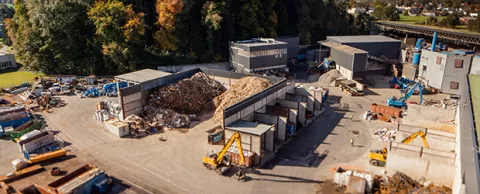
As the world population explodes, so does the amount of trash generated. In fact, just this decade, the amount of waste generated worldwide could double.
Below you’ll read about several cities that are putting the brakes on that wasteful growth. As cities like Seattle, Minneapolis, Menlo Park and Beverly Hills demonstrate, there are solutions. Seattle has achieved record recycling rates via mandate; Minneapolis has had little trouble finding volunteers. Others are making progress by setting ambitious goals.
There is no one right answer, but you’ll find several ideas here. — Kevin Ebi
By Nick Schiffler, Onvia
Waste management has traditionally been a government service area defined by low-tech methods and labor. But recently, cities and other government agencies have been taking proactive steps to make waste collection and processing more efficient and sustainable.
The City of Seattle has moved aggressively to implement sustainable waste management. In 2011, Seattle City Council passed a resolution calling for zero net emissions by 2050, and in 2015 the city passed an ordinance declaring that residents and businesses should not put food scraps, compostable paper, yard waste and recyclables in the garbage (although this law was recently scaled back).
City statistics have shown that their efforts are paying off. Seattle set a record recycling rate of 58% in 2015.
“We consider ourselves very data driven, so we gather information on everything and use that information to help influence what we do and where we go with our programs,” said Susan Fife-Ferris, director of solid waste planning and program management for Seattle Public Utilities.
Some cities have begun proactively planning by incorporating smart waste management ideas, including trends like sustainability and smart technology, into their future budgets and spending plans.
The City of Menlo Park allocated $50,000 in its 2016/17 budget towards a community zero waste policy project. They note that a zero waste policy would “Provide a road map for the city to follow to reduce landfilled waste through less waste generation and recycling.” And the City of Beverly Hills allocated $300,000 through 2019 to develop their own zero waste plan.
Both cities are in California, which, along with Florida, was one of the two top states for solid waste consulting and design projects in a 2016 report analyzing 10 hotspots in government contracting.
The report highlighted a number of technologies that are shaking up the industry. One is using RFID sensors in trash bins. The sensors notify the utility that collection is needed, and has helped increase gains in efficiency for some agencies. Sanitary landfills and solar integration are other technological trends that more cities are considering adopting.
In Minneapolis, 40% of solid waste customers had signed up to participate in the city’s optional organic waste recycling program as of October 2016, up from 34% in April 2016. It’s another example showing that when cities move proactively to manage their waste in a more sustainable manner, their citizens will be more than willing to buy in.
By pursuing smart technology purchases, cities and counties across the nation are developing waste management strategies that are sustainable and innovative.
Nick Schiffler is a business-to-government (B2G) market analyst and content marketer for business intelligence firm Onvia. Follow Onvia on Twitter and LinkedIn to stay up to date with the latest government market insights.



